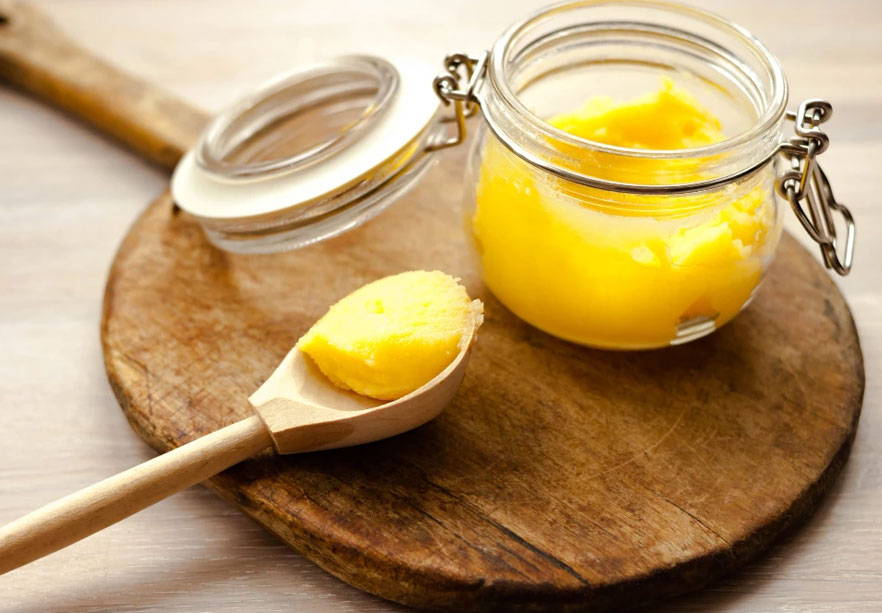
Even though desi ghee has been an Indian kitchen staple for thousands of years, it still attracts a lot of skepticism. Some people question if ghee is good for the heart, while others call it the culprit of obesity and weight gain. Few people even consider it harmful to overall health.
But how true are these accusations on desi ghee? Or are they just myths given rise to tarnish the image of centuries-old, benefits-packed desi ghee? It is time we separate facts from fiction and help people make healthier food choices.
We have debunked the most common myths surrounding desi ghee, so you can decide if the skepticism on desi or cow ghee benefits is justified. Let’s check them out:
Myth 1: Ghee Leads To Weight Gain
Many people are under the mistaken impression that the consumption of desi ghee causes weight gain and obesity. As a result, they tend to avoid eating it. And those trying to lose weight question if ghee is good for weight loss and miss out on the amazing benefits of desi ghee.
But the truth is far from this. Health experts claim that desi ghee can help lose weight, provided you consume it in moderate or recommended amounts. The science behind these claims can be that desi ghee contains conjugated linoleic acid (CLA), which promotes weight loss.
Besides, ghee boosts your gut health by preventing plaques, which fastens metabolism. So, if you are on a weight-loss diet and wondering if ghee is good for weight loss, the answer is yes. It is.
Myth 2: Ghee Is Harmful To Overall Health
The gravest of all the accusations is that ghee is harmful to overall health. But the reality is quite the opposite, and even research stands in favor of cow ghee benefits.
Ghee contains monounsaturated fatty acids, which have been proven healthy for the body, unlike saturated fats.
Various studies also suggest that regular consumption of ghee may prevent cancer because of its anti-inflammatory properties and ability to activate carcinogenesis within the liver. However, more research is needed to confirm this.
Myth 3: Ghee Can Cause Heart Attack
Many people believe that consuming desi or cow ghee can cause heart-related issues, such as heart attack and stroke. A few of them also question if ghee is good for the heart. This myth most probably stemmed from the assumption that ghee contains high amounts of cholesterol, and excessive cholesterol can clog the arteries and cause heart problems.
That said, 50% of the cholesterol found in ghee is good cholesterol or otherwise known as High-density lipoprotein (HDL) cholesterol, which is healthy for overall health, including heart health.
Besides, ghee is rich in antioxidants and fat-soluble vitamins such as A, D, and E. All these essential nutrients are good for heart health and help lower the risk of cardiovascular disease by preventing the deposition of bad cholesterol in the arteries.
Myth 4: Ghee Is Harmful To Lactose-Intolerant People
Since ghee is derived from milk, many people think that it can be potentially harmful to lactose-intolerant people. However, research suggests that anyone, including lactose-intolerant people, can enjoy the benefits of eating ghee daily. This is because desi ghee doesn’t contain casein — a protein found in milk that causes intolerance — and lactose.
Myth 5: Cooking Food In Ghee Is Bad For Health
Many people also avoid cooking food in ghee. Why? Because they mistakenly believe that using ghee as cooking oil can increase the fat content of their meals and cause weight gain or other heart problems. However, unlike many types of oil, ghee has a high smoke point and doesn’t break down into free radicals. This makes it the safest oil for cooking, helping you enjoy the benefits of eating desi ghee daily.
If you are looking for cholesterol-free, pure desi ghee, feel free to reach out to us or shop from our store today.


